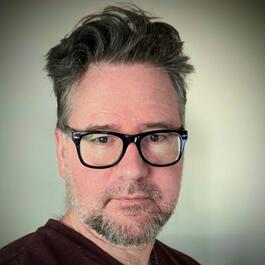What's Science Fiction supposed to be?

@kmo
October 21st, 2015. That was the day that Doc Brown and Marty McFly arrived in the future. They came forward from 1985 to 2015 to a world of actual hoverboards that hovered and other improbable technologies, and some that just don't seem all that exotic to us now, like the big TV screens and voice control of electronics, things like that. But, you know, self-drying sneakers and bizarre clothing, these sorts of things didn't come to pass. But the future doesn't really ever play out the way science fiction tells us that it should. And there's different levels of speculative fiction inside science fiction. You know, some types of science fiction attempt to be scientifically rigorous and to make thoroughgoing and good faith extrapolations as to what the world might be like in some degree, you know, along some axis, if we progress along the path that we're on. And others are just full of sci-fi tropes, skiffy tropes, that really don't have any basis in honest speculation. You just recognize them, you know, laser guns and spaceships and, you know, the worst of all, the most unrealistic, flying cars. And yet I still enjoy sci-fi from the 80s that looks forward, and, you know, even previous decades, although I find it difficult to go back much before the 70s, you know, and watch sci-fi from the 60s and the 50s and whatnot, but like from the 70s, but particularly in the 80s, they were looking forward to just past the turn of the century. And for most of my life, the year 2000 was in the future, and it seemed like a really futuristic date. And now we're long past it. And the world is not nearly as different as I thought it would be, and certainly not in the ways I thought it would be. You know, the movie Blade Runner, which came out, I think, in 1982, was set in the far future year of 2019, when there were off-world colonies, and most of the healthy people who were eligible to emigrate to the off-world colonies had gone, and the only people left on Earth were the damaged ones, the ones who couldn't pass the physical or who were just too poor or mentally defective to be, you know, to qualify for living off-world. Well, that's certainly not the 2019 that we got. But what I really loved about Blade Runner 2049 was that it just stuck to its guns. It said, yep, that's how things were in 2019, and here's how they are 30 years later. I really respected that, and I really love that movie. But I suppose this is all in the service of a question. If sci-fi is not meant to predict the future, is it really just a specific flavor of fantasy? You know, when you think of fantasy, or when I think of fantasy, I think of Tolkien, I think of elves and dwarves and hobbits and kings and wizards and those sorts of things. Is sci-fi, with its flying cars and its spaceships and its robots, is that just an alternate or a specific flavor of fantasy? Because I've always been bothered by the habit of bookstores, and I guess libraries as well, to have sections that they label as sci-fi slash fantasy. Because to me, that's like saying romance slash westerns. I mean, what do the genres have in common? But, you know, if decade after decade, speculative fictions, predictions fail to come about, what's it doing? What's sci-fi, science fiction as a genre, doing that fantasy isn't? Is it just a sub-genre of fantasy, or is it something distinctly different? What do you think?
2 Comments
Post comment